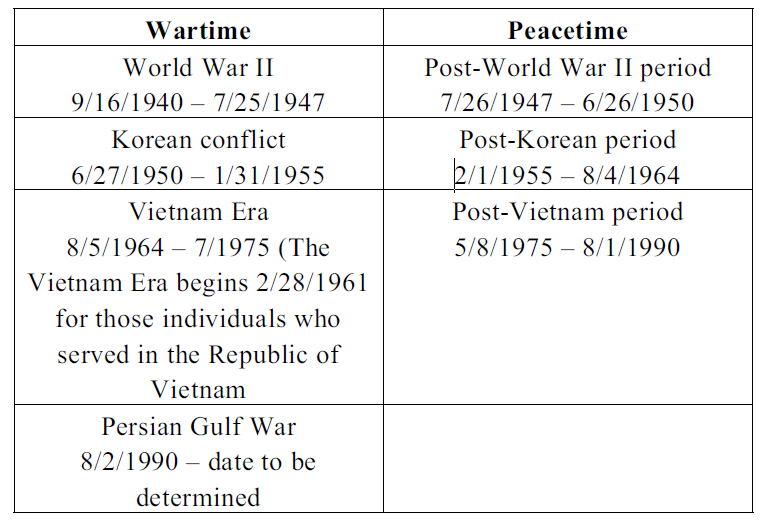Why Spring is a Prime Time for Real Estate Spring consistently ranks as one of…
Understanding VA Loan Eligibility and Entitlement
Understanding VA Loan Eligibility and Entitlement
Thinking about using your VA loan benefit in Colorado Springs? Before you start touring homes, it’s important to understand two key concepts: eligibility and entitlement. Understanding the VA loan limit is also crucial as it can influence your borrowing capacity without a down payment. These determine whether you can tap into the powerful features of a VA loan—including zero down payment—and how much you can borrow before needing to bring cash to the table.
In this post, we’ll break down what it means to be eligible for a VA loan, what “entitlement” is, and how these factors impact your home financing. By the end, you’ll have a clearer picture of what you need to qualify and the advantages that come with this long-cherished home loan program. With guidance from trusted mortgage professionals like those at 719 Lending, you can confidently chart your path toward homeownership in Colorado Springs.
What Does VA Eligibility Really Mean?
Here’s what you need to know next: Meeting the VA’s minimum service requirements is the first step, but it does not guarantee you’ll get a loan. Eligibility simply confirms that you’ve served enough time in the U.S. military or meet certain criteria as a veteran, active-duty service member, reservist, National Guard member, or surviving spouse of a veteran.
The Department of Veterans Affairs (VA) sets specific standards based on when and how you served. For instance:
- Wartime and Peacetime Requirements:Veterans who served at least 90 consecutive days during wartime or 181 days during peacetime may be eligible. Service after certain dates may require 24 continuous months or completion of the full period called to active duty.
- Guard and Reserve Members:Typically need six years of service or at least 90 days of consecutive active-duty service in the Gulf War era to qualify.
- Surviving Spouses:Unmarried surviving spouses of veterans who died on active duty or from a service-connected disability may also be eligible. Certain remarriage conditions apply.
Not sure if you qualify? The VA ultimately decides, but connecting with a knowledgeable mortgage professional at 719 Lending can help you determine your next steps. For more details, visit the U.S. Department of Veterans Affairs website.
Eligibility for Service Members, Veterans, and Surviving Spouses
To be eligible for a VA home loan, service members, veterans, and surviving spouses must meet specific requirements. For active-duty service members, the minimum service requirement is typically 90 continuous days. Veterans must meet the minimum active-duty service requirements, which vary depending on the period they served. For instance, those who served during World War II or the Korean War have different criteria compared to those who served more recently.
National Guard and Reserve members also have specific military service and requirements. Generally, they need to have completed at least six years of service or have been called to active duty for a minimum of 90 days during wartime.
Surviving spouses of service members who died in the line of duty, are missing in action, or are prisoners of war may also be eligible for a VA home loan. Additionally, surviving spouses of service members who received a Purple Heart may qualify. These criteria ensure that the VA home loan benefits extend to those who have made significant sacrifices for their country.
The Certificate of Eligibility (COE)
The VA’s official stamp of approval is a document called the Certificate of Eligibility (COE). This document verifies your right to participate in the VA loan program. While you can request a COE online or by mail, most borrowers let their mortgage lender handle it. Your lender can usually obtain it electronically, often in minutes, if you provide the necessary proof of service (e.g., DD-214 form for veterans or a statement of service for active-duty members).
Once you have a COE, you know you’re eligible—but remember, eligibility does not mean automatic approval. You must still meet credit, income, and property requirements.
If you have a prior loan, it can affect your entitlement. The amount the VA can back on new loans is influenced by the loan amount and backing already provided on prior loans.
Your VA loan entitlement represents how much the VA will guarantee on your behalf. Think of it as the VA’s financial promise to repay a portion of your loan if you default. This guaranty reduces risk for lenders and makes it easier for them to offer perks like zero down payment.
- Basic Entitlement:Often starts at $36,000. This doesn’t mean you can only borrow $36,000. In most cases, lenders multiply your available entitlement by four to determine how much you can borrow without a down payment.
- Bonus (Secondary) Entitlement:Because today’s home prices have risen, the VA created additional entitlement layers. This extra amount often allows qualified buyers to borrow up to conforming loan limits (found here) before facing a down payment. In higher-cost areas, the limit may be even higher.
As a homeowner in Colorado Springs, this can mean no money down on a loan large enough to purchase a property you love. If you’ve used some of your entitlement on another home or lost a home to foreclosure, you might still have partial or total remaining entitlement amount remaining, allowing you to finance another property with a modest or even zero down payment.
How to Get a COE
Obtaining your Certificate of Eligibility (COE) is a crucial step in securing a VA home loan, but the process is straightforward and offers multiple avenues to suit your preference. Here’s how you can get your COE:
- Apply Online: The quickest way to get your COE is through the VA’s eBenefits portal. Simply create an account, fill in your personal and military service information, and submit your request. This method often provides instant results.
- Apply by Mail: If you prefer a more traditional approach, you can fill out a Request for a Certificate of Eligibility (VA Form 26-1880) and mail it to the VA. This method may take a bit longer, but it’s a reliable option.
- Apply Through a Lender: Many lenders, including those at 719 Lending, can help you obtain your COE as part of the loan application process. They can often access the VA’s system directly and secure your COE in minutes, provided you have the necessary proof of service.
- Contact a VA Home Loan Representative: If you have questions or need assistance, you can always reach out to a VA home loan representative at 1-800-827-1000. They can guide you through the process and ensure you have all the required documentation.
By choosing the method that best suits your needs, you can quickly and efficiently obtain your COE and move one step closer to utilizing your VA home loan benefits.
What is VA Loan Entitlement?
VA loan entitlement is the amount of money the Department of Veterans Affairs guarantees to repay lenders if a qualified borrower defaults on their VA home loan. This entitlement acts as a safety net for lenders, encouraging them to offer favorable terms like zero down payment. The VA typically guarantees up to 25% of the loan amount, which significantly reduces the lender’s risk.
It’s important to note that those with full entitlement do not face a VA loan limit, which can significantly impact your borrowing capacity.
There are three types of VA loan entitlement: full entitlement, bonus entitlement, and reduced bonus entitlement. Full entitlement is available to borrowers who have never used their VA loan benefit or have repaid a previous VA loan in full and sold the property. Bonus entitlement, also known as secondary entitlement, comes into play when the loan amount exceeds $144,000. In such cases, the VA guarantees up to 25% of the conforming loan limit for the county where the property is located. Reduced entitlement applies to borrowers who have an outstanding VA loan but still have some remaining entitlement to use for another property.
Understanding these entitlements can help you maximize your borrowing power and make informed decisions about your home financing options.
Calculating Your VA Loan Entitlement
Understanding your VA loan entitlement is key to maximizing your borrowing power. Here’s how you can calculate it:
- Basic Entitlement: Your basic entitlement is $36,000. This amount is the VA’s guarantee for loans up to $144,000. It’s important to note that this doesn’t limit you to borrowing just $36,000; lenders typically multiply this amount by four, allowing you to borrow up to $144,000 without a down payment.
- Bonus Entitlement: For home purchases exceeding $144,000, or in high-cost areas, you may be eligible for bonus entitlement. This is an additional layer of entitlement that covers 25% of the conforming loan limit in your area. For example, if the conforming loan limit is $726,200, your bonus entitlement would be 25% of that amount.
- Remaining Entitlement: If you’ve used a VA loan before, you might have remaining entitlement. To calculate this, subtract the amount of your previous loan from your basic entitlement. For instance, if you used $24,000 of your basic entitlement on a prior loan, you’d have $12,000 remaining.
- Total Entitlement: Your total entitlement is the sum of your basic and any bonus entitlement. This total determines how much the VA will guarantee on your behalf, influencing how much you can borrow without a down payment.
By understanding these components, you can better navigate your VA loan options and make informed decisions about your home financing.
VA Loan Limits: Not a Maximum, Just a Guideline
It’s easy to confuse VA loan limits with borrowing caps, but understanding the VA loan limit is crucial for determining how much you can finance without making a down payment. Here’s the truth: VA loan limits don’t cap how much you can borrow. They only determine how much you can finance without making a down payment. You can always go above these limits, but you’ll likely need to put down at least 25% of the difference.
For example:
- Standard counties have a loan limits change yearly: https://www.fhfa.gov/data/dashboard/conforming-loan-limit-values-map
- High-cost counties may have higher limits, allowing you even more entitlement.
Colorado Springs often falls under the standard limit, but talk to your lender at 719 Lending about your specific situation. Even if you exceed the standard limit, you may still pay far less upfront than with a conventional “jumbo” loan.
The Department of Veterans Affairs does not impose a loan limit, but the maximum VA’ entitlement amount can be influenced by what lenders are prepared to offer based on an individual’s financial circumstances.
How Do VA Home Loan Limits Affect You?
VA home loan limits play a significant role in determining how much you can borrow without a down payment. Here’s how they affect you:
- No Loan Limit: If you have full entitlement, there’s no cap on how much you can borrow. You can secure a loan as large as a lender is willing to offer without needing a down payment, provided you meet the lender’s credit and income requirements.
- Loan Limit: If you have remaining entitlement, your borrowing power is influenced by the county loan limit where you’re purchasing a home. If your loan amount exceeds this limit, you’ll need to make a down payment of 25% of the difference.
- Down Payment: For those using a VA loan to purchase a second home or if your remaining entitlement isn’t sufficient, a down payment may be required. This ensures that the VA’s guarantee covers the lender’s risk adequately.
- Interest Rates: Your VA loan interest rates can also be affected by loan limits. Borrowers with full entitlement often qualify for more favorable interest rates compared to those with remaining entitlement, as the lender’s risk is lower.
It’s important to stay updated on the current VA loan limits, as they can change annually. Always check with the VA or a VA-approved lender like 719 Lending to get the most accurate and up-to-date information. Understanding these limits helps you plan your home purchase more effectively and take full advantage of your VA loan benefits.
Acceptable Uses for Your VA Loan
The VA loan program aims to help you buy a primary residence. Acceptable uses include:
- Single-Family Homes: The most common use.
- Condos in VA-Approved Developments: You can buy a condo if it’s on the VA’s approved list. Otherwise, the approval process can take time.
- New Construction: Build your dream home if you can find a lender or builder arrangement that works.
- Multiunit Properties: Buy up to four units (e.g., a duplex) as long as you live in one unit.
- Refinancing: Swap out your existing loan for a lower rate or different terms, or refinance a non-VA loan into a VA loan.
What you can’t do is use a VA loan purely for investment properties, land without a home, business properties, or homes outside the U.S. and its territories. For personalized guidance on your VA entitlement status, consider contacting a VA home loan representative.
Note
If you plan on keeping the existing home but want to buy another, you may still have some partial entitlement left. In that case, you can use that partial entitlement to buy another property, possibly with a down payment required if you exceed certain thresholds.
- Restoring full entitlement generally requires disposing of the property tied to the prior VA loan or having the loan formally assumed by someone else who substitutes their entitlement.
Restoring Your VA Loan Entitlement
If you’ve used your VA loan benefit before and have an outstanding VA loan, you might wonder if you can restore your entitlement. The good news is that you can. To restore your previous VA loan and entitlement, you must fully repay the original VA loan and sell the property associated with it. This process clears your previous entitlement, allowing you to use it again for a new home purchase.
Another option is a VA cash-out refinance, which can restore your entitlement and apply it to your new mortgage. This can be particularly useful if you want to tap into your home’s equity while restoring your eligible for VA back loan benefits.
The time it takes to restore your past VA entitlement can vary. In some cases, it may take a few weeks, especially if the lender can provide evidence of the sale of the previous property tied to the VA loan. Working closely with your lender can help expedite the process, ensuring you can move forward with your new home purchase without unnecessary delays.
By understanding how to restore your VA loan entitlement, you can continue to benefit from the VA home loan program, even if you’ve used it before.
From Eligibility to VA Loan Entitlement Approval
Securing a VA loan involves two main steps:
- Establishing Eligibility:
Obtaining your COE proves you qualify for the VA’s support. - Meeting Lender Requirements:
Even with a COE, you must satisfy the lender’s credit, income, and property standards. Just because you’re eligible for a VA loan doesn’t guarantee you’ll be approved by a lender.
At 719 Lending in Colorado Springs, our loan officers are experienced with VA loans and can guide you through these final steps. Understanding your entitlement, lining up your finances, and addressing any credit issues can help you move from eligibility to approval more smoothly.
Take the Next Step With 719 Lending
Ready to explore your VA loan benefits further? Let 719 Lending help. Our team understands the Colorado Springs real estate market, VA guidelines, and the best strategies to maximize your borrowing power.
Ready to get started? Check out our Home Loan Options and connect with a mortgage professional who knows how to make the most of your VA eligibility and entitlement. With expert guidance, you’ll be one step closer to unlocking homeownership in Colorado Springs.




